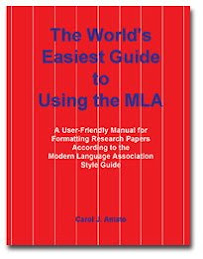A Five-part Series by Carol J. Amato
13. Accept the fact that college is not like high school. Whether you attend a traditional college/university or an accelerated program onground or online, you'll be expected to turn in your homework by the dates assigned.
Do you feel free to ignore deadlines at work? No. Would you expect your boss to accept a project that was completed past its due date or let you do another one instead? Of course not. College is no different from the workplace. There may be no "extra credit" to make up for assignments you missed.
Unless you have a real crisis (such as a death in your immediate family, you've been diagnosed with a serious disease, or you're being deployed in the military), don't expect any sympathy from your instructor/professor if you can't meet the class requirements. Even then, your instructor/professor may not show you any sympathy.
If such a crisis does occur, notify your instructor/professor immediately so you at least have a fighting chance of getting an extension on your deadlines. Notifying him/her after the assignment is due is guaranteeing doom. Nothing can be done at that point.
14. Back up all your homework. Don't let the copy/file you turn in be the only one in existence. Keep a backup on disk and a hard copy, too. You never know when you'll have to rely on them.
15. Save copies of all syllabi from your classes. If you ever decide to change schools, you may need to show the new school what was taught in each class before they will accept your units. The syllabi may be your only evidence.
16. Research all your professors ahead of time. If you get to choose your professors, check them out ahead of time on http://www.rateyourprofessor.com/. Look at the totality of the comments. One bad review may merely indicate a student who is disgruntled over a legitimately earned bad grade. If most of the comments are good, you have a winner.
Stay tuned for Part 5....
Welcome!
Writing well is critical not only to your college career but to your future in your professional career. If you are a lower-division student who wants to do the best job possible on your class papers without tearing your hair out, you've come to the right place. This blog will answer your questions and show you user-friendly ways to produce writing that will impress your professors.
Friday, July 17, 2009
Friday, July 3, 2009
20 Tips for Returning to College, Part 3
A Five-part Series by Carol J. Amato
9. Find out if your school has an Assessment of Prior Learning program (the name may be slightly different). Through this program, you can apply for credit to wipe out electives for classes that weren’t accepted through the traditional matriculation process, seminars you’ve taken at work, and classes you took while in the military, if applicable. Units earned through such a program are often less expensive than units earned through attending a class. In addition, the time saved is worth the extra effort this program requires.
10. Test out of classes in which you are already an expert. Testing programs like CLEP and DANTES are offered at most schools. Oral exams may also be offered. Investigate your options. You’ll save yourself a lot of time and money. Bear in mind that you may not be able to test out of classes in your major.
11. Keep your family at the top of your priority list. Let housework, yardwork, and other chores fall to the bottom. You want the support of your family members, so don’t risk alienating them by ignoring them. Set aside family time.
12. Ignore coworkers/supervisors/bosses/friends who try to sabotage your educational efforts. Not everyone is so motivated, and some people will express their jealousy by trying to undermine your endeavor. Don’t let them get in the way of your dreams.
Stay tuned for Part 4....
9. Find out if your school has an Assessment of Prior Learning program (the name may be slightly different). Through this program, you can apply for credit to wipe out electives for classes that weren’t accepted through the traditional matriculation process, seminars you’ve taken at work, and classes you took while in the military, if applicable. Units earned through such a program are often less expensive than units earned through attending a class. In addition, the time saved is worth the extra effort this program requires.
10. Test out of classes in which you are already an expert. Testing programs like CLEP and DANTES are offered at most schools. Oral exams may also be offered. Investigate your options. You’ll save yourself a lot of time and money. Bear in mind that you may not be able to test out of classes in your major.
11. Keep your family at the top of your priority list. Let housework, yardwork, and other chores fall to the bottom. You want the support of your family members, so don’t risk alienating them by ignoring them. Set aside family time.
12. Ignore coworkers/supervisors/bosses/friends who try to sabotage your educational efforts. Not everyone is so motivated, and some people will express their jealousy by trying to undermine your endeavor. Don’t let them get in the way of your dreams.
Stay tuned for Part 4....
Subscribe to:
Comments (Atom)


